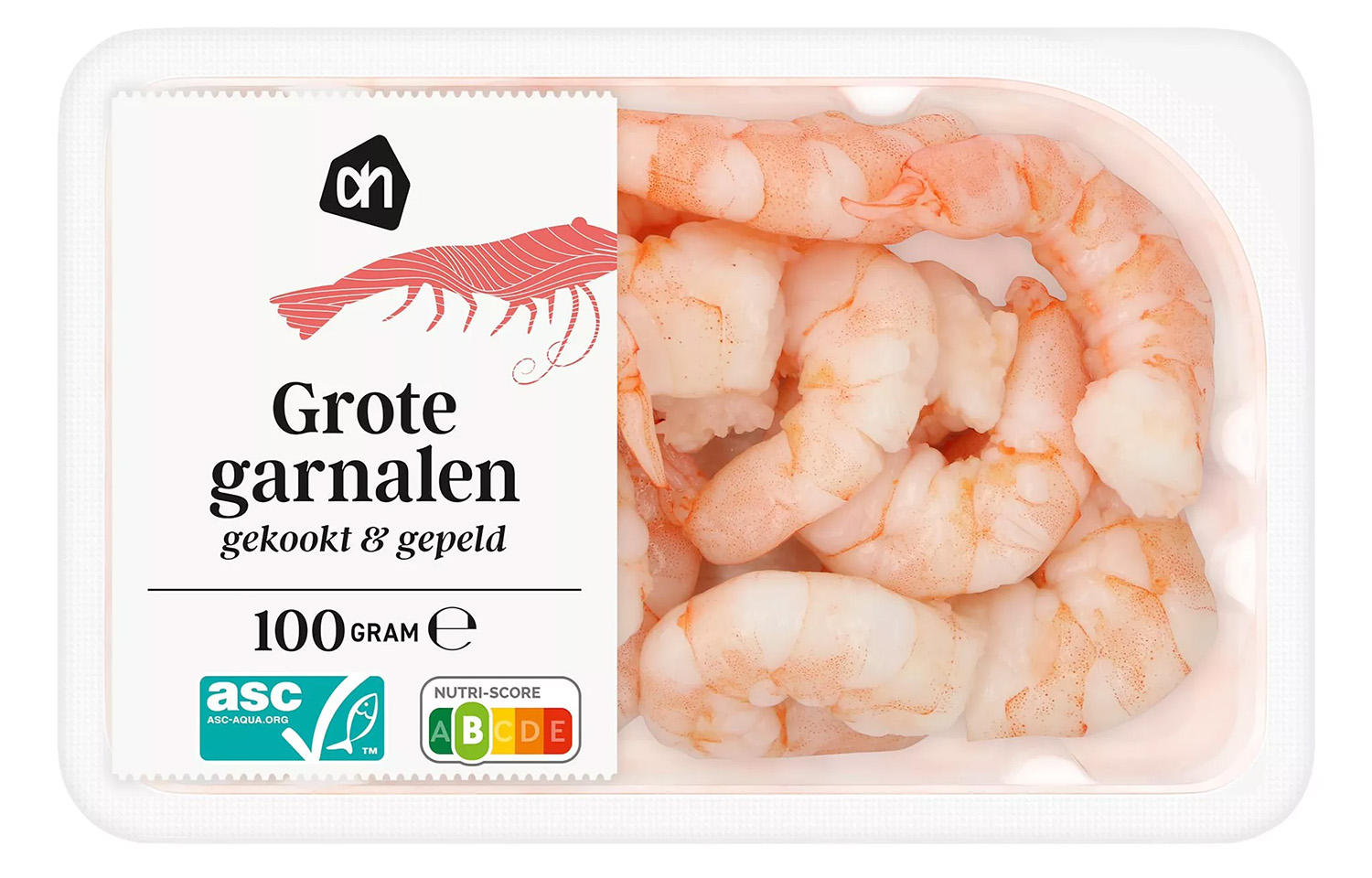Dutch retail chain Albert Heijn has begun stocking farmed shrimp fed on a diet that includes insect meal created by Protix and algal oil from Veramaris.
The debut is the result of a collaboration between Protix, Veramaris, Ecuadorian shrimp-farming firm Cofimar, feed-maker Skretting, and shrimp importer Klaas Puul begun in 2023.
“Albert Heijn is setting a new standard for sustainable seafood in the Netherlands. They are the first to introduce farmed shrimp that are raised with significantly higher welfare standards and have a low marine footprint, a culmination of several years of collaboration between multiple supply chain partners,” Skretting said in a press release.
The partnership involves the incorporation of omega-3 EPA- and DHA-rich algal oil and Protix insect meal – which uses no marine-sourced inputs – into feed crafted by Skretting Ecuador for Cofimar. Skretting mixes those ingredients with seafood processing byproducts traceable back to MarinTrust-accredited fisheries in Ecuador, and soy sourced from deforestation-free and land-conversion-free origins. Cofimar then raises the shrimp according to Aquaculture Stewardship Council-certification standards.
Albert Heijn Quality Manager for Meat, Seafood, and Cheese Emiel Beekwilders said the partnership had been a major success.
"Collaborating with Veramaris, Skretting, Klaas Puul, Cofimar, and Protix not only advances sustainable aquaculture but also delivers healthier and more sustainable choices to our customers,” Beekwilders said in a press release.
Owned by retail giant Ahold Delhaize, Albert Heijn operates nearly 1,000 stores in the Netherlands, as well as an additional 50 in Belgium. The company sources nearly all its shrimp sold in its refreshed segment from Sykes Seafood-owned Klaas Puul, and the two firms have been collaborating to reduce their environmental impact.
Klaas Puul Senior Purchase Manager Jan Bootsman, who is also responsible for the project’s implementation, told SeafoodSource in 2023 the project is initially working with dedicated vertically integrated producers in Ecuador, before expanding to others as it scales.
“We hope that other producers will see the market potential of a proposition where the shrimp is fed with more sustainable feed and that also other farmers outside the project will look for partners to do similar projects,” he said. “We hope that our project contributes to the faster adoption of alternative and more sustainable feed ingredients to make the shrimp industry as a whole more sustainable and resilient in the future.”
Outside of the Netherlands, Klaas Puul is also actively promoting the project with other retailers and inviting them to come aboard, Bootsman said. And the other consortium members are also pushing their partners and others in the seafood industry to join the project or to adopt similar sustainable practices to widen the availability of sustainable shrimp.








